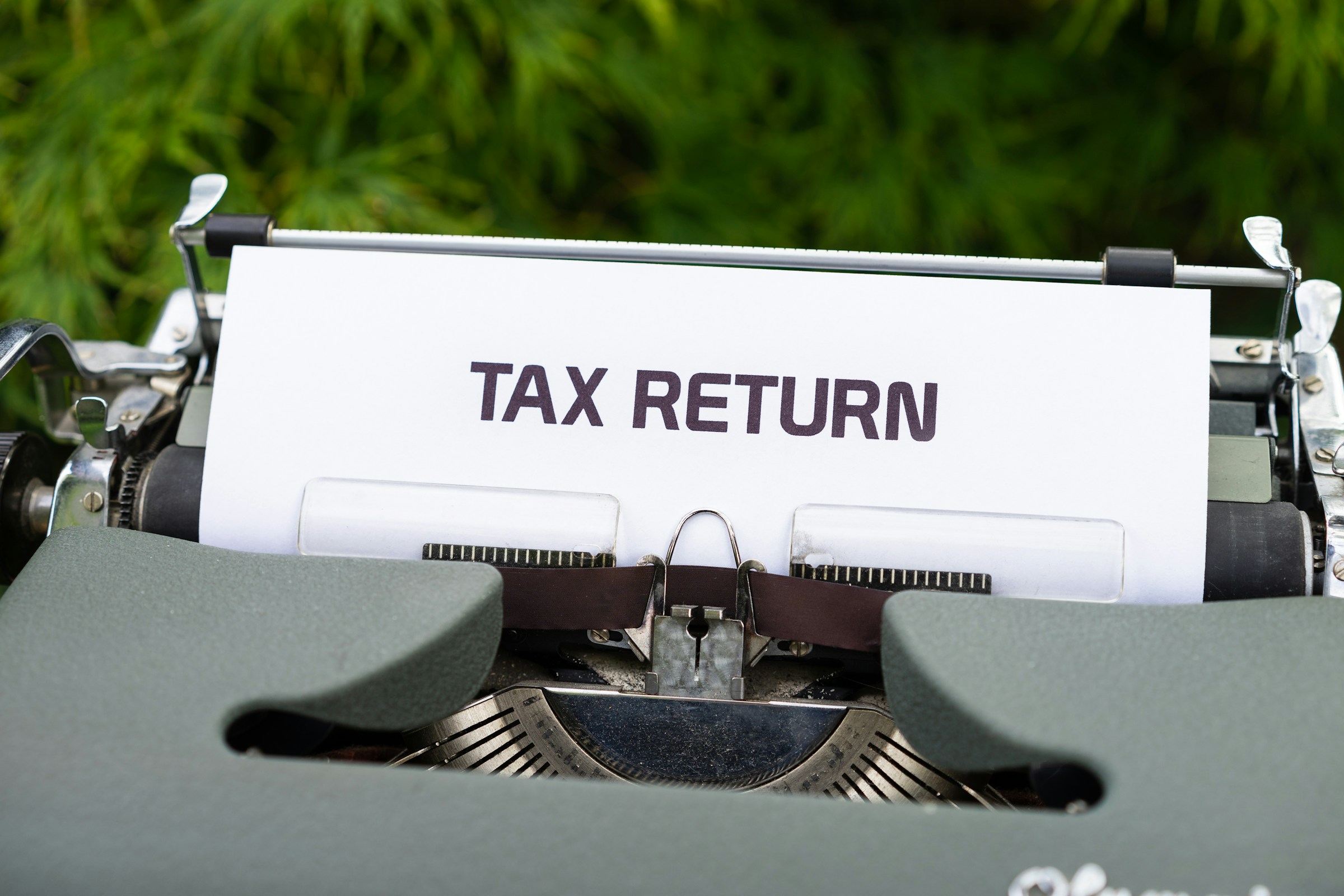The question sounds simple, yet it hides every decision most working adults make with their money. The purpose of a tax return is to reconcile your actual income with the tax that should be due under the law, then to correct the difference through payment or refund. Around that core function sits everything else that matters to a citizen or resident. Your tax return is the formal place to claim reliefs, prove eligibility for credits, disclose other income that withholding never touched, and create an auditable record that follows you when you apply for a mortgage, relocate for work, or respond to a government benefit review. It is both a calculation and a declaration, which is why governments take it seriously and why individuals should treat it as more than a form that appears once a year.
At its most basic, a return brings three numbers together. First is your total income from all sources, not only your main salary. Second is the set of deductions, allowances, or reliefs that the law permits. Third is any tax already paid on your behalf through monthly withholding or estimated payments. The filing turns those inputs into a single outcome. If your withheld tax exceeds your computed liability, you receive a refund. If it falls short, you settle the balance. That settlement is not a penalty. It is the final step in a system that cannot know your full year until you tell it, which is what the return does.
This reconciliation role exists even in countries with strong withholding systems. In Singapore, employees often see tax handled through employer reporting and the No Filing Service for straightforward cases. In the UK, the Pay As You Earn system covers most salaried workers, leaving only some to complete Self Assessment. In the US, employers withhold each month using published tables, but the annual Form 1040 still decides the final figure. The logic is similar in Malaysia for resident taxpayers under monthly tax deductions. Withholding cannot perfectly estimate every life change, side gig, investment distribution, or deductible contribution you made after your employer set your tax code. The return closes that gap.
A second purpose is to make your entitlements real. Reliefs and credits can change your tax bill dramatically, but most systems do not apply them automatically across every scenario. If you top up retirement savings, pay qualifying insurance premiums, support dependent parents, or make allowable donations, the return is where you declare those actions. When the law grants a credit, which reduces tax dollar for dollar, it will not usually appear unless you claim it. When the law grants a deduction or relief, which reduces taxable income, the onus is on you to document it. In practice, this means the return is a benefit gateway. If you skip filing when you should, or file with missing information, you leave money unclaimed.
Third, the return expands the government’s information beyond your main job. Many people now have multiple income streams. A salaried engineer might rent out a room for several months, sell content online, receive dividends from a foreign brokerage, or exercise stock options. Some of these incomes are already reported to authorities by payers, but many are not captured in real time or are treated differently by jurisdiction. Your return is where the system sees the whole picture. This matters for fairness across taxpayers. It also protects you. When you disclose fully, you reduce audit risk later and lessen the chance of penalties for underreporting.
Fourth, a tax return is an official record that supports your financial life. Lenders often ask for recent returns when processing a home loan or business credit. Immigration and tax residency questions are frequently answered with return filings. If you apply for a government grant or means tested benefit, your eligibility may be assessed using figures drawn from your return. In short, filing builds a verified trail of income that others can rely on. This is especially important for self employed people or anyone with variable earnings, since pay slips alone do not always prove the full picture.
There is also a compliance purpose that sits in the background. The return is a legal declaration. When you submit it, you attest that it is true and complete to the best of your knowledge. That attestation enables the government to administer the law consistently. It gives the authority standing to issue assessments, accept amendments, and request supporting documents. It also limits disputes. If you later find an error, most systems allow amended returns within a specified window. The existence of that original filing, and your prompt correction, usually leads to smoother resolution than if nothing had been filed at all.
Consider how this plays out for a mid career professional with a steady salary, employer stock vesting, and a small amount of rental income. Monthly withholding from the salary may be close to accurate. However, restricted stock units that vest mid year can trigger income that the employer reports but does not fully withhold on, depending on the plan and jurisdiction. The short term rental income may have no withholding at all. The taxpayer also contributed to a retirement scheme and paid for a qualifying insurance rider. The return adds the stock income and rent to the salary, subtracts the retirement and insurance reliefs, and applies the right rates. It then nets out the withholding already paid. Without the return, the tax system would never see the rent, would overestimate the tax without those reliefs, and would not match the final liability to the correct person.
For a freelancer, the return is even more central. There is no employer to withhold or to pre report benefits. The self employed person uses the return to declare gross receipts, subtract allowable business expenses, and compute both income tax and, in some countries, self employment contributions to social programs. Bank statements are not a substitute for the calculation rules in tax law. The return translates business activity into the framework the system recognizes. It also creates a basis for financing. Many lenders will ask for two or three years of returns before extending credit to a sole proprietor. Filing accurately is therefore not only a legal duty. It is a business hygiene practice.
Cross border workers and expats should view the return as a residency and treaty tool. If you live in one country and earn in another, each may ask for a return based on its rules. Tax treaties often prevent double taxation, but the relief typically requires a claim, evidence of tax paid elsewhere, or a specific form filed with your return. The purpose remains the same. You are reconciling income, asserting reliefs allowed by law, and giving the authorities the information required to apply treaty benefits properly. Skipping a return because you assume withholding abroad solved everything can be an expensive mistake.
You might ask whether the growing use of pre filled data makes returns redundant. In many places, the tax authority now receives information from employers, banks, and insurers, then shows you a draft calculation. That is a welcome convenience. It does not change the core purpose. Pre filling can never know about every deductible expense, every eligible dependent, or every source of side income unless you confirm or add it. Treat the pre filled return as a starting point. Your role is to finish the reconciliation and make your entitlements visible.
There is a related misconception that filing a return increases your chance of being audited. In reality, failing to file when required creates more risk than filing accurately. Modern systems use data matching and risk models to flag gaps between third party reports and taxpayer filings. A complete return that ties out to those reports and includes reasonable claims is a stabilizing signal. An absent or incomplete filing is an outlier the system is designed to investigate.
Timing matters too. Returns anchor the statute of limitations for assessments and amendments. In plain terms, the countdown for how long an authority can adjust your tax, or how long you have to correct a mistake, often starts when you file. Filing on time gives both sides a clear window. Filing late or not at all can keep that window open longer than you would like, which is not in your interest.
If you are a salaried employee in a country that says you may not need to file because the authority already has what it needs, ask a few simple questions. Did you have side income, investment distributions, or gains that were not reported through employer channels. Did you make contributions or donations that qualify for relief. Did your family situation change in a way that affects allowances. If you answer yes to any, filing a return is still the cleaner path. The purpose of a tax return is to make the year accurate for you, not only convenient for the system.
Finally, a practical word about documentation. The return is your declaration. Your receipts, statements, and letters are the evidence. Keep them in an organized folder for the year. Most authorities do not require you to attach everything at filing, but they can ask later. When they do, having clean records turns a stressful request into a routine confirmation. This is not about being perfect. It is about being prepared for a system that works on proof.
In summary, a tax return exists to settle the year with precision. It reconciles income, applies the right rules for reliefs and credits, nets withholding against the final liability, and records the outcome in a form that banks, agencies, and future you can rely on. It protects you by showing the full picture and by starting the clock on how long the year can be revisited. Whether you file because you must or because it is the best way to claim what is yours, the purpose remains the same. The return turns the moving parts of a year into a single, verified truth.
The smartest mindset is calm and consistent. Treat the annual return as part of your financial hygiene, much like renewing insurance or reviewing your savings plan. If your life changes, your return will show it. If your entitlements grow, your return will claim them. Over time, that habit builds a reliable record and fewer surprises, which is ultimately what most people want from their money and from their government interactions.






.jpg&w=3840&q=75)
.jpg&w=3840&q=75)
.jpg&w=3840&q=75)





